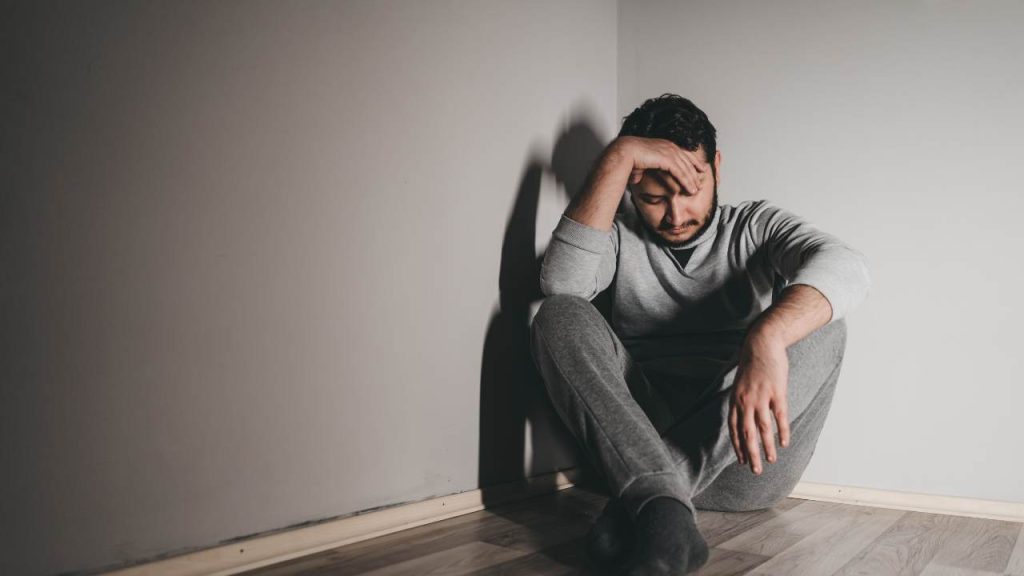Depression is a mental health disorder characterized by persistent feelings of sadness and hopelessness, along with a variety of other symptoms, including changes in appetite, sleep, energy levels, and concentration. People with depression often have difficulty functioning normally in everyday life.
The goals of treating depression usually involve relieving symptoms and restoring a person’s ability to function as normally as possible in everyday life. This is usually done through a combination of psychotherapy and medication, depending on the individual’s needs. Treatment steps might include identifying unhealthy thought and behavior patterns and developing better ways of coping with difficult emotions, improving interpersonal relationships, and exploring the underlying causes of depression, such as family dynamics and life events.
Contents
Causes of Depression
1. Biological Factors- Changes in the brain or its chemistry can impact a person’s mood and lead to depression. These can be caused by trauma or genetics.
2. Social Factors- Relationship issues, challenges in the workplace, or a traumatic event can all lead to depression. These activities can lead to decreased self-esteem, making it harder to handle everyday life.
3. Psychological Factors- Negative thoughts, stress, past trauma, or feeling overwhelmed with events can all trigger the mental health issue of depression.
4. Lifestyle Choices- Diet, alcohol and drug abuse, or physical inactivity can lead to feelings of depression. Also, excessive use of technology or media can have a negative effect on mental health.
5. Situational Factors- Unexpected events such as death, job loss, or financial trouble can all cause someone to become depressed.

Symptoms of depression
Depression is an illness that is characterized by persistent low moods and a generalized loss of interest in activities. Common symptoms of depression can include feeling of sadness, loss of pleasure, difficulty in sleeping, changes in eating habits, fatigue, difficulty in concentrating, feeling worthless or guilty, and/or thoughts of self-harm or suicide. People experiencing depression may also feel unusually irritable, anxious, and experience physical symptoms such as back pain, headaches,digestive problems and other forms of discomfort. It is important to know that depression can affect the way one thinks and behaves, and have a negative impact on one’s relationships and daily life.
What are the Treatment Options for Depression?
Treatment options for depression vary depending on the individual and the severity of their symptoms. Medication is often used to treat moderate and severe depression, while psychotherapy can be helpful for mild depression. Cognitive-behavioral therapy helps the individual identify and change their thought patterns, while interpersonal therapy focuses on the individual’s interactions with other people. In addition, various lifestyle changes such as exercise, diet, and relaxation techniques can help manage symptoms. Ultimately, individuals should work with a mental health professional to determine the best treatment plan for their individual needs.
Can I Beat Depression Without Medication?
Depression is a serious condition that can have a profound effect on your life. Some people are able to manage their depression without medication, while others find that medication is necessary in order to improve their symptoms. There is no right or wrong answer, and treatment should be tailored to the individual.
That said, there are a few things to keep in mind if you are considering managing your depression without medication. First, it is important to make sure that you are getting adequate sleep, eating a balanced diet, and exercising regularly. These lifestyle changes can often make a significant difference in managing depression. Additionally, therapy can be a helpful tool in managing depression without medication. If you are struggling to manage your depression, it is important to speak with a doctor or mental health professional to explore all of your treatment options.
It is possible to manage depression without medication, however this will require a vigorous effort and commitment to lifestyle changes. Examples of lifestyle adjustments that may help include:
When attempting to beat depression without the use of medication, it is important to be patient and remember that progress may be slow. Seeking the support of a qualified mental health professional is also highly recommended.

7 Tips for managing depression without medication
1. Exercise regularly: Regular physical activity releases natural chemicals, called endorphins, in your brain which help fight depression and anxiety. Exercise also helps to reduce stress, improve your mood and increase energy levels.
2. Eat a healthy diet: Eating a healthy, well-balanced diet can help to improve mood and energy levels. Avoid sugary foods or drinks, and limit caffeine consumption as these can make depression worse.
3. Connect with others: Spend time with friends and family and develop new relationships with people who make you feel good about yourself. Spending time with people who understand and accept you can help to decrease feelings of isolation.
4. Practice relaxation techniques: Taking time out to practice relaxation techniques such as meditation, mindful breathing, or progressive muscle relaxation can help to reduce stress and improve mood.
5. Adjust your thinking: Learning to recognize emotional triggers and negative thinking patterns can help to reduce the symptoms of depression. Try to focus on positive thoughts, and challenge negative ones.
6. Get enough sleep: Poor sleeping patterns can worsen depression. Try to get a regular amount of sleep and make sleeping habits more consistent.
7. Do something meaningful: Find something that brings purpose and meaning in your life. It could be anything from volunteering to taking up a creative hobby.
Conclusion:
No single treatment works for everyone with depression, but with a combination of self-care and professional help, it is possible to beat depression without medication. It is important to remember to be patient and practice self-compassion when creating a wellness and mental health plan, as recovery is a journey that takes time. Additionally, lifestyle changes such as stress management, better sleep and nutrition, physical exercise, and meaningful connections can greatly help in overcoming depression without medication.

